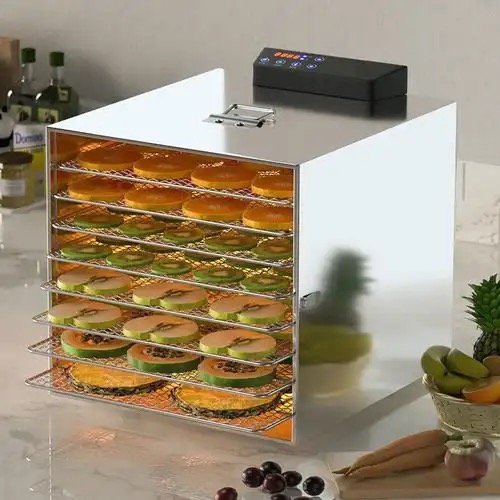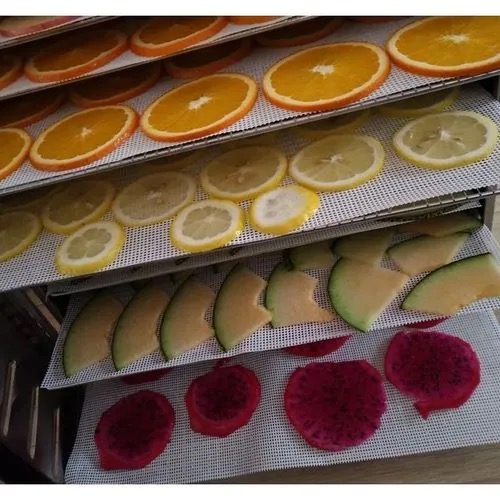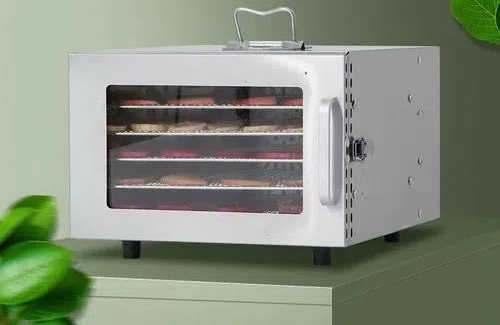
Content Menu
● Understanding Heat Pump Technology
● How Heat Pump Dryers Work
● Benefits of Heat Pump Dryers for Food Processing
>> 1. Energy Efficiency
>> 2. Gentle Drying Process
>> 3. Versatility
>> 4. Space-Saving Design
>> 5. Reduced Moisture and Odor
● Applications of Heat Pump Dryers in Food Processing
>> 1. Fruit Drying
>> 2. Vegetable Drying
>> 3. Herb Drying
>> 4. Meat and Fish Preservation
● Cost Considerations
>> Return on Investment (ROI)
● Conclusion
● Frequently Asked Questions
>> 1. What is a heat pump dryer?
>> 2.How does a heat pump dryer differ from a traditional dryer?
>> 3. Can heat pump dryers be used for food drying?
>> 4. What are the energy savings associated with heat pump dryers?
>> 5. Are heat pump dryers worth the investment?
In recent years, the demand for energy-efficient appliances has surged, particularly in Canada, where the climate can be harsh and energy costs high. Among these appliances, heat pump dryers have gained popularity for their efficiency and versatility. However, as a manufacturer of food drying machines, we want to explore the broader implications of heat pump technology, particularly in the context of food drying. This article will delve into the benefits of heat pump dryers, their applications in food processing, and why they are a worthy investment for Canadian homes and businesses.

Understanding Heat Pump Technology
Heat pump technology is a method of transferring heat from one place to another, using a small amount of energy. Unlike traditional dryers that expel hot air and moisture outside, heat pump dryers recycle the air within the machine. They extract moisture from the clothes or food, condense it, and then reuse the warm air to continue the drying process. This closed-loop system not only saves energy but also reduces wear and tear on fabrics and food products.
How Heat Pump Dryers Work
Heat pump dryers operate by using a refrigerant to absorb heat from the air inside the dryer. The process involves several key components:
1. Evaporator: The refrigerant absorbs heat from the air, causing it to evaporate and turn into gas.
2. Compressor: The gas is compressed, which raises its temperature.
3. Condenser: The hot gas passes through the condenser, where it releases heat to the air inside the dryer, warming it up.
4. Expansion Valve: The refrigerant then passes through an expansion valve, where it cools down and returns to a liquid state, ready to start the cycle again.
This efficient process allows heat pump dryers to operate at lower temperatures, making them ideal for delicate fabrics and sensitive food products.
Benefits of Heat Pump Dryers for Food Processing
1. Energy Efficiency
One of the most significant advantages of heat pump dryers is their energy efficiency. They consume significantly less energy compared to traditional dryers, which is particularly beneficial for food processing facilities that require large-scale drying operations. By reducing energy consumption, businesses can lower their operational costs and minimize their environmental impact.
2. Gentle Drying Process
Heat pump dryers operate at lower temperatures, which is crucial for preserving the quality of food products. High temperatures can degrade the nutritional value and flavor of food, while gentle drying helps maintain the integrity of the product. This is especially important for dehydrating fruits, vegetables, and herbs, where preserving taste and nutrients is essential.
3. Versatility
Heat pump dryers are versatile and can be used for various applications beyond just laundry. In the food industry, they can be used to dry a wide range of products, including:
1. Fruits (e.g., apples, bananas, berries)
2. Vegetables (e.g., carrots, tomatoes, peppers)
3. Herbs (e.g., basil, oregano, thyme)
4. Meat and fish (for jerky and preservation)
This versatility makes heat pump dryers an excellent investment for food manufacturers, wholesalers, and retailers.
4. Space-Saving Design
Many heat pump dryers are designed to be compact and stackable, making them ideal for facilities with limited space. This is particularly advantageous for small food processing operations or businesses that need to maximize their available floor space.
5. Reduced Moisture and Odor
Heat pump dryers effectively remove moisture from food products, which helps prevent the growth of mold and bacteria. Additionally, because they do not vent air outside, they help maintain a controlled environment, reducing odors that can occur during the drying process.

Applications of Heat Pump Dryers in Food Processing
1. Fruit Drying
Heat pump dryers are ideal for drying fruits, as they can maintain the flavor and nutritional content while removing moisture. For example, apples can be sliced and dried at low temperatures, resulting in a delicious and healthy snack without the use of preservatives.
2. Vegetable Drying
Vegetables can also benefit from heat pump drying. Carrots, for instance, can be dried to create a lightweight, shelf-stable product that retains its color and flavor. This process is particularly useful for food manufacturers looking to create dehydrated meal kits or snacks.
3. Herb Drying
Herbs are sensitive to heat, and traditional drying methods can lead to loss of flavor and aroma. Heat pump dryers provide a gentle drying environment that preserves the essential oils in herbs, resulting in a high-quality product that is perfect for culinary use.
4. Meat and Fish Preservation
For businesses involved in meat and fish processing, heat pump dryers can be used to create jerky or dried fish products. The low-temperature drying process helps retain the flavor and texture of the meat while ensuring it is safe for consumption.
Cost Considerations
While heat pump dryers may have a higher initial purchase price compared to traditional dryers, the long-term savings on energy bills and the benefits of improved product quality can make them a worthwhile investment. Additionally, many manufacturers offer financing options or incentives for businesses looking to upgrade their equipment.
Return on Investment (ROI)
Calculating the ROI for a heat pump dryer involves considering factors such as energy savings, increased product quality, and reduced waste. Businesses that invest in heat pump technology often find that they can recoup their initial investment within a few years through lower operating costs and increased sales of high-quality dried products.
Conclusion
In conclusion, heat pump dryers represent a significant advancement in drying technology, particularly for the food industry. Their energy efficiency, gentle drying process, and versatility make them an excellent investment for Canadian homes and businesses involved in food processing. As the demand for high-quality, dehydrated food products continues to grow, investing in a heat pump dryer can provide a competitive edge while also contributing to sustainability efforts.

Frequently Asked Questions
1. What is a heat pump dryer?
A heat pump dryer is an energy-efficient appliance that uses a closed-loop system to dry clothes or food by recycling warm air and removing moisture.
2.How does a heat pump dryer differ from a traditional dryer?
Unlike traditional dryers that vent hot air outside, heat pump dryers recycle air, making them more energy-efficient and suitable for delicate items.
3. Can heat pump dryers be used for food drying?
Yes, heat pump dryers are ideal for drying fruits, vegetables, herbs, and meats, preserving their quality and nutritional value.
4. What are the energy savings associated with heat pump dryers?
Heat pump dryers can save up to 50% more energy compared to traditional dryers, leading to lower utility bills.
5. Are heat pump dryers worth the investment?
Yes, despite a higher initial cost, the long-term savings on energy and improved product quality make heat pump dryers a worthwhile investment.












